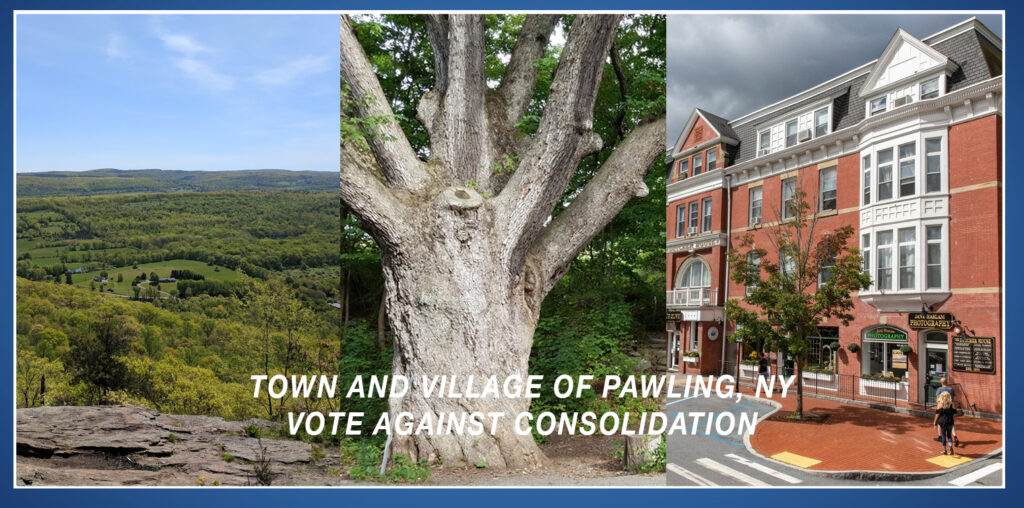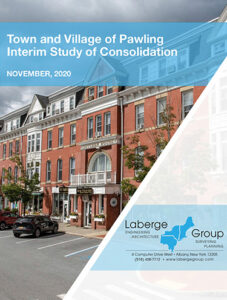
Citizens from both the Town and Village of Pawling voted decisively not to consolidate the municipalities in referendums held on November 30, 2020. As required by law, both the Village and Town of Pawling passed resolutions calling for the referendums on a potential consolidation of the two municipalities in response to petitions filed by the electorate of both communities.
Prior to the referendums, the Town and Village Boards determined it appropriate to develop an Interim Study of Consolidation to assist the residents of Pawling in understanding the potential impacts and costs of consolidation. Laberge Group was engaged to develop the Interim Study by compiling, analyzing, and presenting data; investigating potential opportunities for cost savings and/or improved service delivery through a potential consolidation; and describing potential post-consolidation conditions. Both the Town and Village Boards, as well as employees and representatives of both municipalities, invested significant time and effort to assist in this process by providing data, program information, and valuable insights that contributed to the thoroughness and accuracy of the final Interim Study.
 The result was an impartial and thorough document that provided voters with objective information on the potential impact that a consolidation may have had on: (1) the provision of services, (2) level of representation in local government, and (3) cost and taxation implications. In addition, the Town and Village hosted two public information meetings, facilitated by Laberge Group, to assist each voter in making an informed decision when voting in the referendums. The meetings presented findings from the Interim Study and afforded the opportunity to answer questions from voters regarding the process and potential outcomes.
The result was an impartial and thorough document that provided voters with objective information on the potential impact that a consolidation may have had on: (1) the provision of services, (2) level of representation in local government, and (3) cost and taxation implications. In addition, the Town and Village hosted two public information meetings, facilitated by Laberge Group, to assist each voter in making an informed decision when voting in the referendums. The meetings presented findings from the Interim Study and afforded the opportunity to answer questions from voters regarding the process and potential outcomes.
One of the key findings of the Interim Study was that there were not significant areas of duplication of services between the Town and Village – the elimination of which would have had the potential to generate cost-savings for the communities that could then be passed along to taxpayers. In fact, investigation revealed that service overlap was limited and that its elimination would have minimal fiscal impact. After analyzing cost-savings of a potential consolidation that maintained the services delivered by both the Town and the Village, the Interim Study process identified an estimated savings of $52,616 per year.
Armed with this information, and the detailed findings provided in the final Interim Study of Consolidation, the electorate of both the Town and Village made their determination about the future form of governance for their communities.
With more than 1,800 ballots cast, the results were:
Village residents: 84 Yes – 543 No
(more than 6-to-1 against consolidation)
Town residents: 341 Yes – 891 No
(almost 3-to-1 against consolidation)


